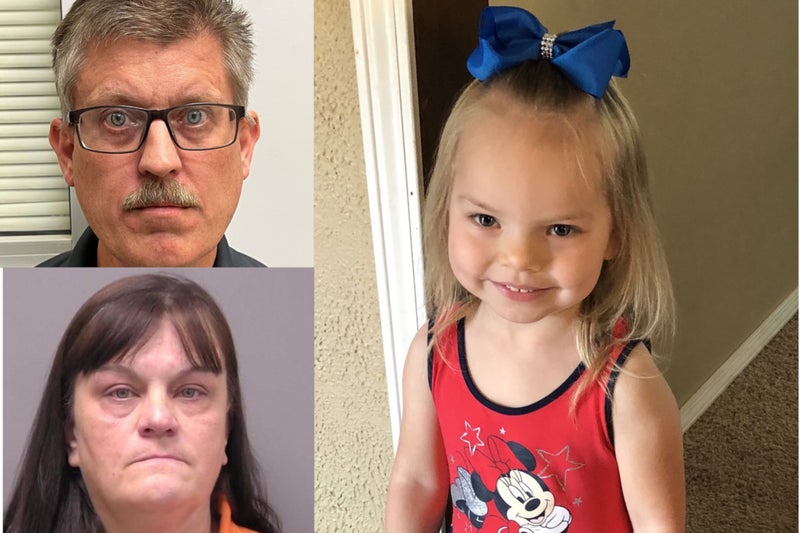Joan always suspected she had been handed someone else’s baby by the hospital when she gave birth more than 70 years ago. Then an Ancestry DNA test seemed to prove her right. Now in her 90s, she is in a race against time. Can she find her missing child?.
![[Joan with her husband Tom and their younger children Sue and Doug photographed on holiday ]](https://i.guim.co.uk/img/media/ae1736b4340428ea6e28964ef54b32295492ab13/0_348_6478_3887/master/6478.jpg?width=445&dpr=1&s=none&crop=none)
When Sue bought her mother and younger brother Ancestry kits for Christmas in 2018, she knew that they were never going to be fun gifts. A lingering doubt had always cast a shadow over their family, a question that had gnawed at them for decades. Sue hoped that, if she, Joan and Doug took DNA tests together, they might finally have the answer they craved.
![[Joan with Doug and Sue, sitting on a sofa and holding hands.]](https://i.guim.co.uk/img/media/b26b82dc18a2beb01de123f7aa449ab6458f9960/0_373_6083_3650/master/6083.jpg?width=445&dpr=1&s=none&crop=none)
Their results came in a few weeks later. Ancestry listed Sue and Doug as full siblings, with Joan as their mother. Their father, Tom, had died in 2016. Sue felt certain that William – her parents’ first child, the older brother she and Doug had grown up with, a man they hadn’t seen for years – had already taken a DNA test with Ancestry. But he didn’t appear anywhere on their genetic family tree.
![[Joan looks through some of the birth certificates she has ordered so far.]](https://i.guim.co.uk/img/media/6b98efab1b8d8fbea7b1205913d4b0b086499bd9/0_446_6720_4032/master/6720.jpg?width=445&dpr=1&s=none&crop=none)
“We could see we were all as we should be, and he was nowhere,” Sue explains in the living room of Joan’s home in Weymouth. “Then I rang Ancestry, and said he hadn’t pulled through as a match. They just said: ‘Very sorry for your results, but DNA doesn’t lie.’”.
![[Joan, Doug and Sue.]](https://i.guim.co.uk/img/media/6c47618c891fdbd92a93d7988e4fcf3b708e42f0/0_237_5682_7103/master/5682.jpg?width=445&dpr=1&s=none&crop=none)
The news that William was not biologically related to any of them didn’t come as a shock to Sue, Joan or Doug. “It felt like confirmation of what we’d always known,” Sue tells me. William had always seemed so different from the rest of the family. And something strange had happened at the hospital after he was born, something that had always played on Joan’s mind, even though for years she kept her worries to herself.
The DNA results turned out to be only the beginning of a quest for answers that would come to consume their family. Joan had given birth to a son in the West Midlands in April 1951. If William wasn’t that baby, then who was? The question has become an obsession that has taken over Sue’s life, and cost Joan thousands of pounds.
Cases where babies have been accidentally switched at birth are supposed to be unheard of in the UK. In response to a 2017 Freedom of Information request, the NHS replied that there were no records of babies being accidentally brought home from hospital by the wrong set of parents in recent years. But I have discovered that, at a time before babies were routinely tagged with wristbands and were kept apart from their mothers in creches overnight, mistakes happened – with unimaginable consequences.
Last November, I reported on the story of two women who discovered they had been accidentally switched at birth in a West Midlands hospital in 1967 – all due to an Ancestry DNA test, received as a Christmas gift and casually taken on a rainy day in 2022.
It was devastating news for both families, and the two women had to question everything they thought they knew about their heritage and identity. The NHS has admitted liability in this case, and agreed to pay compensation – although, three years on, the final sum is still yet to be agreed. The NHS trust told the families it was the first documented case of its kind in the history of the health service.
Since November, my inbox has been filled with stories of other accidental baby swaps, recently discovered through people taking at-home DNA tests out of idle curiosity. A Norwegian lawyer got in touch with news of her client, Mona, who had taken a MyHeritage DNA test in 2021, only to discover that she had been switched at birth in 1965; she was fighting for compensation from the Norwegian government after it was revealed that her birth mother had known about the mistake for decades but had been discouraged from looking for Mona. Another case, in Barcelona in 1972, had also recently come to light because of someone taking a MyHeritage test. The Spanish government has agreed to pay compensation in what will be the third case of its kind in the country.
Several people have sent me stories about near misses in the UK. A man described how he had been handed to the wrong woman a few hours after his birth in 1953; he was already being breastfed by the time his mother realised the mistake. A woman who had worked for Hampshire social services in the 1990s pointed me towards a case where two babies were taken home from a Southampton hospital by the wrong sets of parents in November 1992 and spent two weeks with the wrong families. One of the mothers had had suspicions, but the other had been convinced she had the right baby until DNA testing confirmed the mixup.
All of which is to say that accidental baby swaps are more common than any of us previously imagined. But Sue, Doug and Joan’s case is different from all of these stories. Joan had always secretly suspected she had been given the wrong baby more than 70 years ago, and while the Ancestry test appeared to confirm this, the DNA results have not yet been able to tell her who the right baby was. With Joan now in her mid-90s, Sue feels she is in a race against time to find the biological son her mother never even got to hold.































